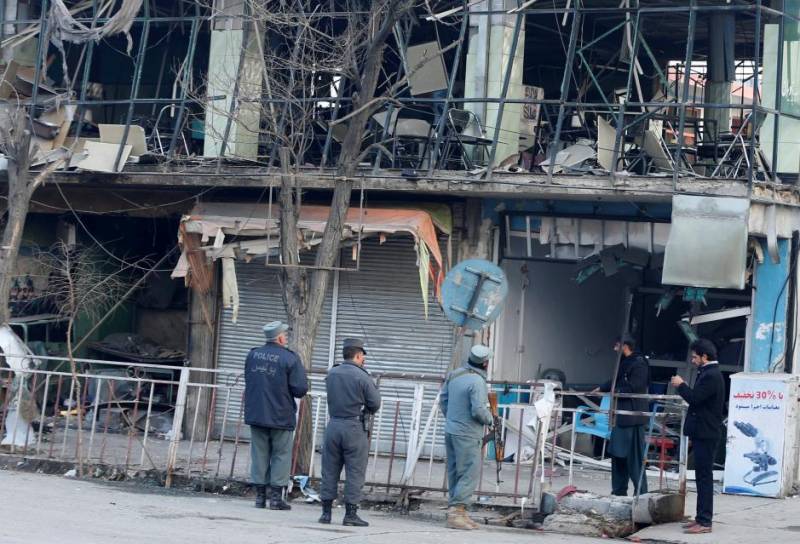Kabul (Reuters) - Kabul reacted in despair and fear on Sunday, a day after a suicide bomb killed and wounded more than 250 people in the worst attack seen in the Afghan capital in months.
There was a mix of helpless anger at the seemingly endless wave of attacks after an ambulance packed with explosives blew up in a crowded city street, with security officials warning that more attacks were possible.
“How are we to live? Where should we go?” asked shopkeeper Mohammad Hanif, who was in his shop near the site of the explosion when it went off.
“We have no security, we don’t have no proper government, what should we do?”
At least 95 people were killed and 158 wounded in the blast, claimed by the Taliban, a week after their deadly attack on the city’s Intercontinental Hotel, in a calculated answer to US President Donald Trump’s new strategy in Afghanistan.
“The Islamic Emirate has a clear message for Trump and his hand kissers that if you go ahead with a policy of aggression and speak from the barrel of a gun, don’t expect Afghans to grow flowers in response,” Taliban spokesman Zabihullah Mujahid said in a statement, using the term the use to describe themselves.
Trump, who last year sent more American troops to Afghanistan and ordered an increase in air strikes and other assistance to Afghan forces, said the attack “renews our resolve and that of our Afghan partners”.
The attack was the worst seen in the Afghan capital since a truck bomb near the German embassy killed 150 people in May.
“People were running everywhere to escape, there were wounded people lying on the ground, people with wounds to their arms, legs, heads,” Hanif said.
After a deadly week in which an office of the aid group Save the Children in the eastern city of Jalalabad was also attacked, President Ashraf Ghani’s Western-backed government has faced growing pressure to improve security.
Despite a major tightening in checks following the May 31 attack, the ambulance was able to get through the checkpoints, apparently without difficulty.
“People don’t have work. There’s no life for people in Afghanistan. People have to look for a life somewhere else, there’s nowhere,” said shopkeeper Sameem.
Pressure is likely to mount on President Ashraf Ghani to resolve political confrontation with his opponents, in particular with provincial powerbrokers defying central rule, and focus on security.
“People think the government is working very badly and security is no good,” said Najib Mahmood, political science professor at Kabul University.
“The government can control the situation but the president has to share power with others, he needs unity with other parties so they can fight the Taliban together,” Mahmood told Reuters.
Former US ambassador to Afghanistan Zalmay Khalilzad called for Ghani’s government and its main political rival, powerful northern leader Atta Mohammad Noor, to “come together and resolve their differences”.
“Fighting terrorism and protecting the people is job one. I hope they rise to the occasion,” Khalilzad said on Twitter.


